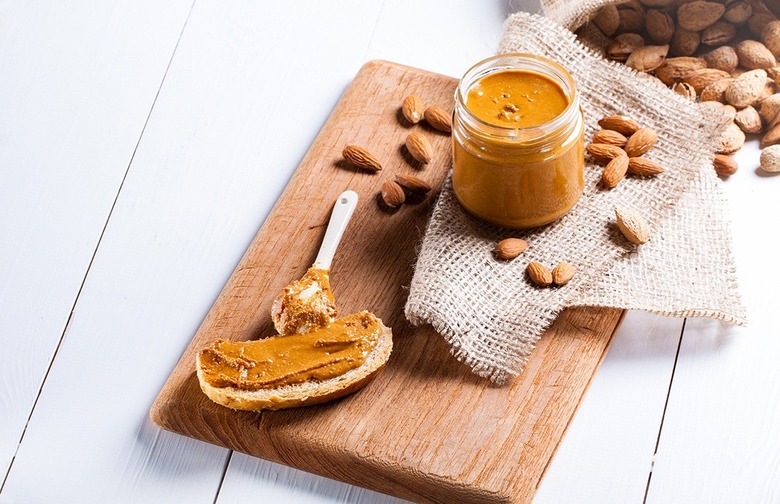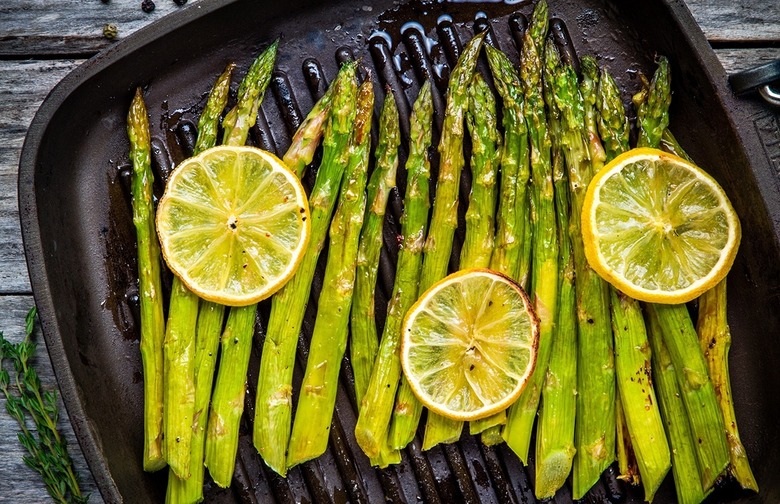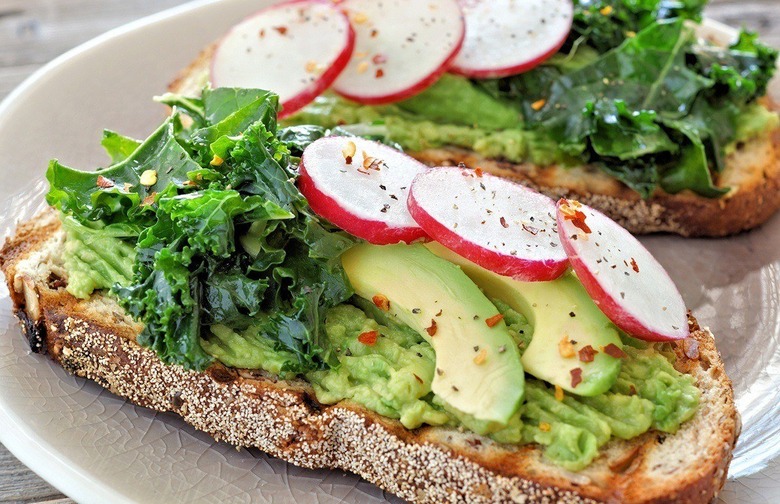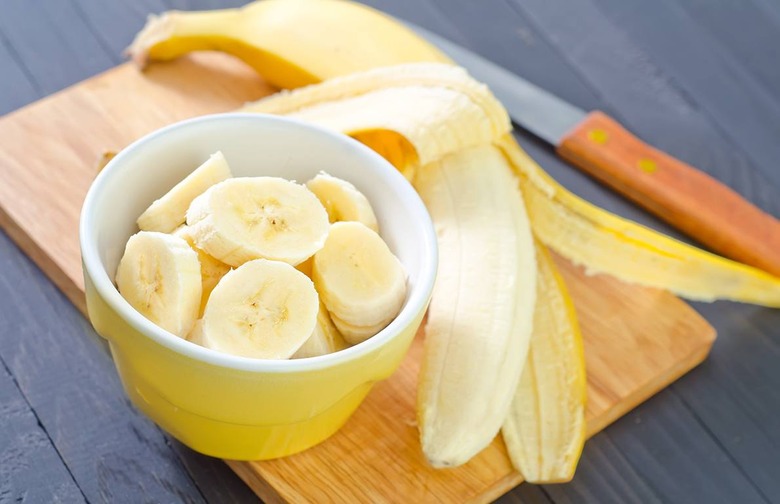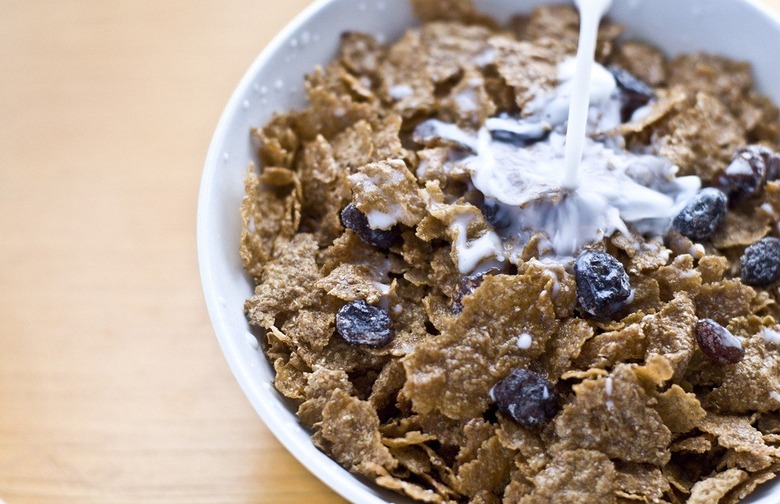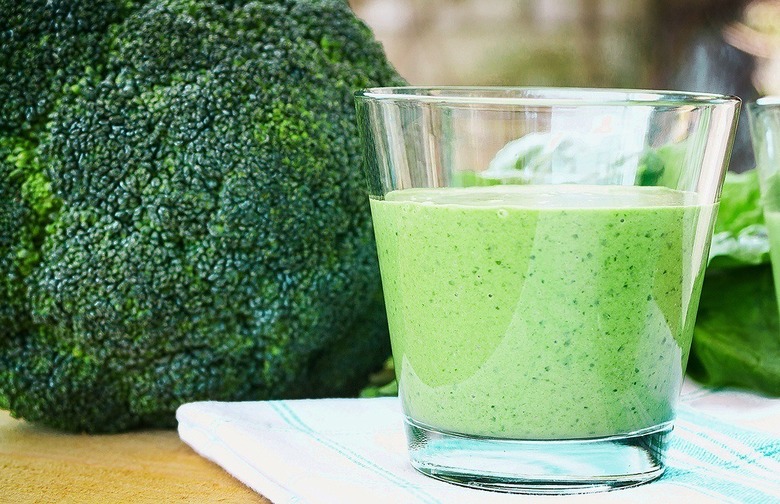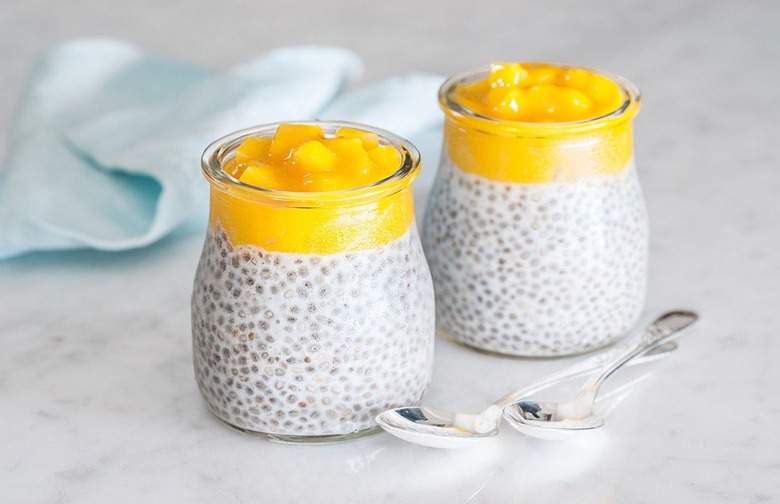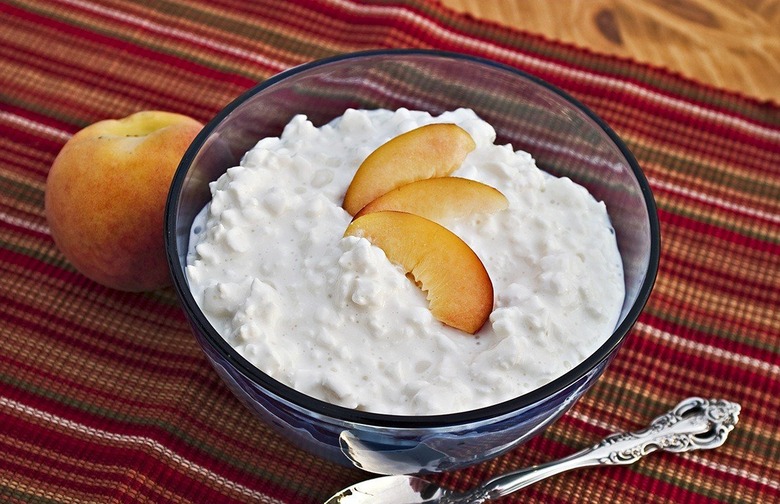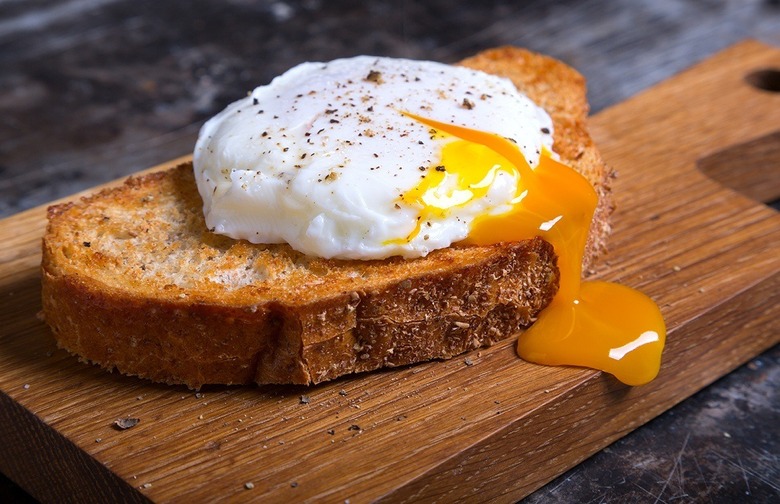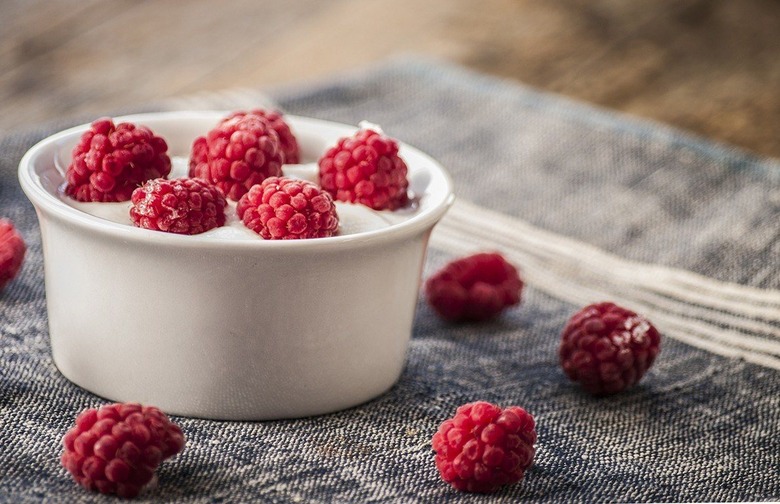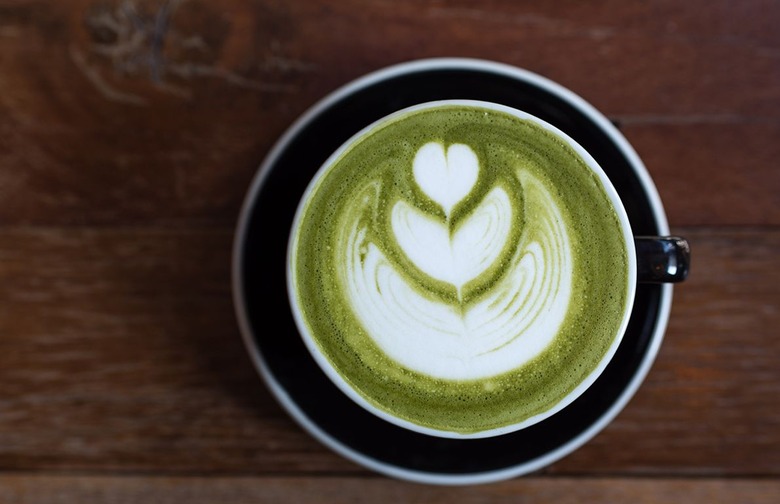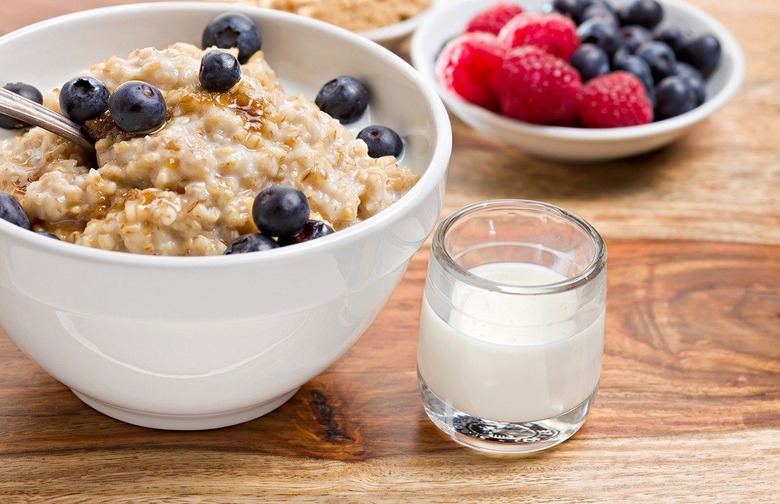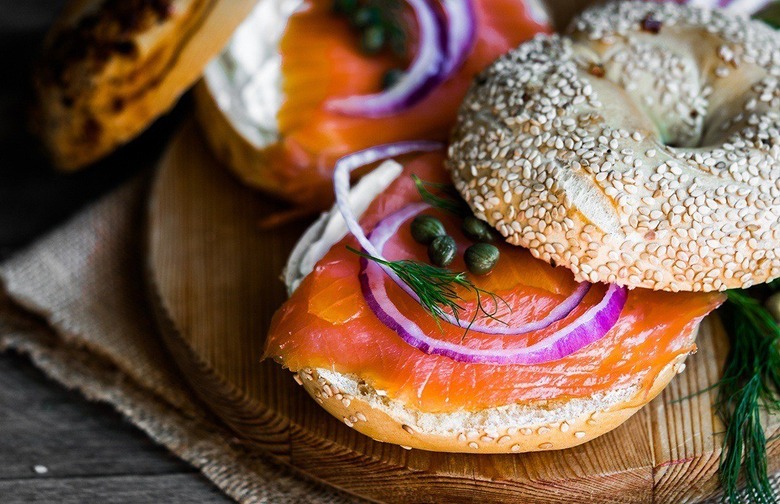The 15 Best Breakfast Foods To Help You Ace A Job Interview Gallery
Interviews are seriously stressful. You're going to want to eat the right breakfast to set yourself up for success. Success could land you your dream job; failure forces you to continue searching for employment. Feel the pressure yet?
You can prepare all you want — reviewing potential questions, working on your handshake grip, planning the proper outfit — but all of this preparation can be futile if you don't have a proper breakfast.
Breakfast is hailed as the most important meal of the day (despite a couple of reports saying otherwise). It jump-starts your metabolism and provides the energy necessary to get you through a long day.
When considering which foods to eat for breakfast before an interview, a few factors need to be taken into account: You need a steady stream of energy, heightened focus, strong memory retention, and sweet-smelling breath. (Maybe save the garlic bagel for another day.)
A couple cups of coffee might keep you awake temporarily, but there are some drawbacks to guzzling caffeine before your big day. For one, coffee is a diuretic, meaning it will likely lead to frequent trips to the restroom. Plus, the crash from the caffeine could happen at an inopportune moment.
Instead, before a job interview you should be relying on foods that will lower anxiety, like asparagus; provide sustainable energy, like apples and almond butter; and improve memory retention, like smoked salmon. Here are your smartest options for the breakfast to prepare you for your interview.
Almond Butter
A plain bowl of oatmeal isn't the most exciting breakfast in the world, but adding a spoonful of almond butter will have you focused, full, and ready to greet the day. Almonds contain healthy polyunsaturated fats which help lower blood sugar levels, blood pressure, and cholesterol. They also keep your brain running at its maximum capacity while keeping you calm and focused. Almond butter is a versatile ingredient that goes well smeared on apples, mixed in oatmeal, or spread on a piece of whole-grain toast.
Apples
An apple a day does more than keep the doctor away. An apple is a convenient breakfast food that can be chomped down in a hurry alongside a granola bar or other snack, but can also be eaten diced up and added to a yogurt parfait. Apples contain high levels of fiber and natural sugars that break down slowly in the body, releasing a steady stream of glucose into the bloodstream and providing the body with a consistent source of energy. Some research has shown that apples improve neurological health because they contain quercetin, one of two compounds found to reduce inflammation of neurons.
Asparagus
This spring superfood isn't part of traditional breakfast fare, but asparagus can help relieve some pre-interview anxiety. Asparagus is rich in folic acid and vitamin B12 — two nutrients crucial for proper neurological function. One cup of cooked asparagus (around 10 spears) offers 50 percent of your daily requirement, and the earthy stalks make a delicious accompaniment to a poached egg or frittata.
Avocados
Whether it's topping avocado toast, overnight oats, or a plate of huevos rancheros, avocado has become a staple of modern breakfast culture. There are all kinds of creative ways to incorporate the fruit into your morning routine. In a study funded by the Hass Avocado Board, avocados were found to improve lutein levels in the brain, which is related to improved cognition. Avocado's mono-saturated fats also benefit the information-carrying nerves in the brain.
Bananas
Nature and centuries of selective breeding have provided humanity with the ultimate portable breakfast snack — the banana. Bananas provide a unique mixture of antioxidants, carbohydrates, and potassium to give your body an energy boost. Potassium can also help your body deal with sodium, combating bloating and helping you feel more comfortable for your interview. Add some sliced banana to a bowl of cereal or throw it into a protein-rich breakfast smoothie.
Blueberries
There's a reason neurologists love these berries. Eating a pint of blueberries can actually help sharpen your quick wit. These tart-yet-sweet berries are incredibly rich in antioxidants, specifically gallic acid. Over 6,500 peer-reviewed articles have labeled this compound as a neuroprotective agent that maintains brain health. Blueberries are easy to incorporate into breakfast by adding them to oatmeal, yogurt, or even pancakes.
Bran Cereal
In the grocery store, you never see a child getting too enthusiastic over the bran cereal, but since you're an adult it's time to switch over to the dark (brown) side. Bran cereals contain magnesium, an underappreciated micronutrient that is responsible for 300 biochemical reactions, most notably the breaking down of glucose into energy. A lack of magnesium might lead to a mid-day energy crash — not ideal for an afternoon interview.
Broccoli
When walking into an interview you want to appear cool, calm, and confident. The solution: a breakfast with broccoli. A half cup of broccoli provides 11 micrograms of chromium, almost 50 percent of the recommended daily intake. This trace mineral works directly with mood regulators in the brain, and aids in managing levels of mood-boosting neurotransmitters like serotonin, norepinephrine, and melatonin. The University of Maryland Medical Center claims that 90 percent of Americans don't get enough chromium in their daily diet, so get ahead of the competition and incorporate broccoli into a morning quiche or have a cup of broccoli-powered coffee. You might even eat a slice of broccoli-topped pizza — it could be a healthier breakfast than most cereals!
Chia Seeds
The word chia is derived from the Mayan word for "strength," and before a stressful interview you can use all the strength you can get. Chia seeds contain a variety of nutrients and antioxidants, plus they are all too easy to prepare. In a Mason jar (or just a bowl, if you don't plan on Instagramming your breakfast), add some milk or non-dairy milk alternative to a few spoonfuls of chia seeds. Cover and refrigerate overnight for a simple chia pudding.
Cottage Cheese
Cottage cheese has the reputation of being Greek yogurt's painfully uncool older brother, but all of that is set to change as consumers begin to appreciate its rich nutritional content. Cottage cheese is a complete protein (perfect for post-workout meals), and a non-meat source of vitamin B12, a nutrient linked to reducing the severity of anxiety and depression.
Eggs
Despite the cholesterol in the yolk, eggs are an ideal breakfast food and an inexpensive way to get a protein-rich food into your morning routine. They also contain choline, an essential nutrient that stimulates brain development and has been linked to improved memory retention. Try them scrambled, poached, or baked in a muffin tin for easy on-the-go egg bites.
Greek Yogurt
Greek yogurt is hailed as a breakfast staple for its versatility and its high protein content, but the real health benefits come from its probiotics. These healthy gut bacteria help with digestion and fight against bad breath — perfect for an up close and personal interview.
Matcha
Matcha, a concentrated green tea powder, is a superfood packed with antioxidants that is also found to boost energy and endurance — just what you need when you're running out of the house. It's also got caffeine, so if you're addicted to coffee but want to avoid it before the big day, matcha could be an ideal alternative. It's often served whisked with a small amount of hot water and used as the base of lattes, but the powder can also be easily mixed into a breakfast smoothie. Just remember to use it sparingly; a little matcha goes a long way.
Steel-Cut Oats
Overnight oats are one of the trendiest breakfast foods around, but part of the reason for this fibrous fad is that it tastes so darn good. When the oats steep overnight in milk or a non-dairy alternative, they develop a creamy consistency almost like a pudding. Top with bananas and avocado for a complete breakfast that you can wake up and walk out the door with.
Salmon
A layer of lox or smoked salmon draped over a cream-cheesed bagel is a breakfast luxury that will not only excite your taste buds but also make your mind sharper. Salmon is a legitimate superfood because it contains DHA, or docosahexaenoic acid, a long-chain polyunsaturated fatty acid prominent in fatty fish like salmon, which has been linked to improved cognitive functioning. In children, a lack of DHA can lead to behavioral issues such as attention deficit hyperactivity disorder and aggressive hostility. Add some lox to your bagel or scrambled eggs. Or visit one of the best Jewish delis for a breakfast sandwich you won't forget!
More from The Daily Meal:
How Much Breakfast Cost the Year You Were Born
The Best Restaurant for Breakfast in Every State
The Healthiest and Unhealthiest Dunkin' Donuts Drinks

